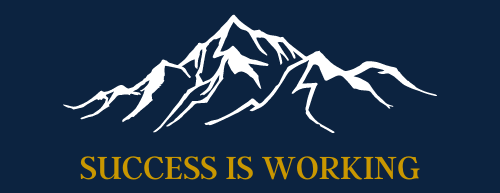
Conventional wisdom advises us to act our age. Younger people often hear the message “Be patient, you aren’t ready, you don’t have the experience” when starting a business, getting married, or making a financial investment. Older people frequently hear the message “Be careful, don’t hurt yourself, it isn’t worth the risk” when they engage in physically demanding exercise. While I understand the intent behind the recommendations, I wholeheartedly disagree.
Sometimes we should act older than our age and sometimes we should act younger than our age. Society assumes younger people aren’t intelligent enough, trustworthy enough, mature enough, or confident enough to start their own businesses, manage substantial customer relationships, have fulfilling marriages and be responsible parents. Society also assumes older people shouldn’t push it too hard for fear of pulling a hamstring, tearing an ACL, or having a stroke.
If we believe these assumptions to be true, how do we explain Mark Zuckerberg’s (26 years old) success with Facebook – worth $6.9 billion or Sean Belnick’s (22 years old) success with Bizchair (selling office furniture to Google and Microsoft) – worth $50 million (started his business at age 14). Were these guys too young to have the vision to develop a great business idea? Were they too young to be sophisticated enough to develop profitable business relationships? Of course not! Age was not the reason nor the obstacle for their success. They were successful because they had business acumen, the foresight to develop a great business opportunity, and the confidence to believe they could succeed. Without these characteristics, they would not have succeeded at age 22, 26, or 56.
At the other end of the spectrum, how can we explain the feats of some phenomenal people?
George Blair, age 92, is an accomplished water skier – https://www.youtube.com/watch?v=JankgaPZp9w
Tao Porchon-Lynch is a 96 year old certified yoga instructor who appeared on Dancing with the Stars in 2015 – https://www.youtube.com/watch?v=CdXp15Lbx1c
At age 76, Min Bahadur Sherchan was the oldest human being to climb Mt. Everest.
When Faukja Singh was 100, he completed a marathon. Seven years earlier he completed a marathon in 5 hours and 40 minutes.
Science and medicine suggests these feats should not be attempted or completed by humans at such an advanced age. Muscles are atrophying, bones are more brittle, and lung capacity is declining – in short, our bodies are falling apart. Age probably does play a factor; however, it is not as important a factor as we believe it to be. These people succeeded because they committed to physically training their bodies and would not succumb to the belief that ‘old age’ meant their best years were in their past. Subscribing to Nike’s slogan, they “Just Did It”.
One of my favorite weekly activities is playing competitive pick-up basketball with friends. At 50, I am usually the oldest one on the court by several years and play with guys in their 40’s, 30’s, and 20’s. Some people have suggested I’m getting too old and should quit before I blow out a knee or an Achilles heel. I don’t think about my age when I take the court, rather I focus on doing what I need to do to be the best basketball player I can be. I physically condition my body so I can run the court, I stretch to avoid muscle pulls, and I practice my basketball skills so I can be of value to my team.
The challenge I want to place before you today is, “Forgetting your age, what do you want to accomplish? What are the necessary steps you need to take to make you successful?” Age, by itself, is not a significant advantage or a disadvantage. The tools you need to succeed are a vision, a positive attitude, a plan, a willingness to persevere, and self-confidence.
Success is realizing that there is a weak correlation between age and success.
SuccessIsWorking
